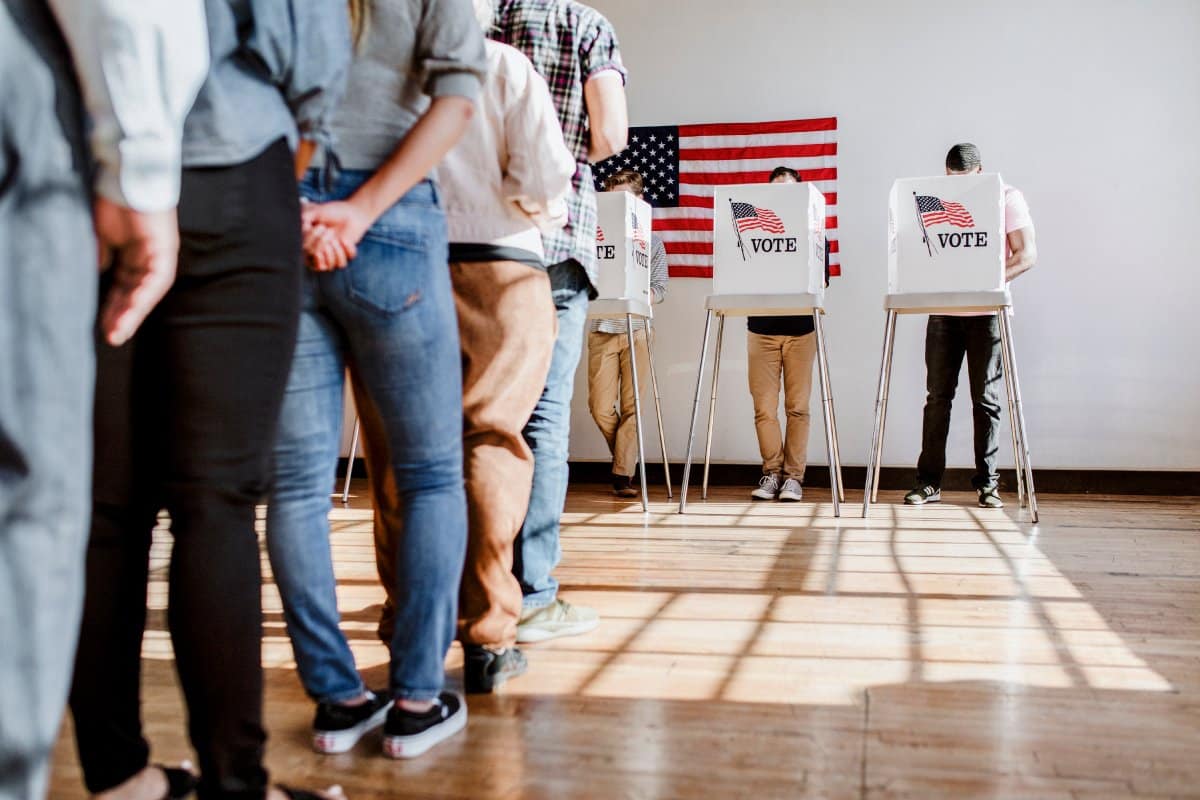Governor Brian Kemp’s new voting laws are sparking fierce debate in Georgia. The state, a hotbed for political change, now faces new regulations that could significantly affect voter turnout and access. Are these laws fortifying election integrity or creating barriers for voters?
Understanding the Core Issues

Governor Kemp’s 2021 voting laws have polarized Georgia. Critics argue that these measures suppress voter turnout, especially among marginalized communities. Supporters claim they’re necessary to prevent fraud and secure voting processes. “We must ensure secure and fair elections,” Kemp asserts, highlighting the challenge of balancing election integrity with voter access.
Historical Context of Voting in Georgia

Georgia’s history with voting rights is complex, marked by significant struggles and progress. From the discriminatory practices of the Jim Crow era to the pivotal Voting Rights Act of 1965, the state has seen major reforms. However, recent legislative changes raise concerns about potentially reversing these hard-won gains.
Current Voter Engagement Data

Voter registration has surged, especially among younger and minority voters, with a 30% increase in new registrations during the 2020 election cycle. Yet, the new laws could affect these numbers. In 2022, Atlanta’s Fulton County saw a 15% turnout increase, while rural Taliaferro County experienced a 10% decline, illustrating the uneven impact of the regulations.
Turnout and Barriers

The new laws have led to varied voter experiences. Some areas report increased participation due to heightened mobilization efforts, while others struggle with confusion and new barriers. Persistent issues like longer lines and fewer polling locations particularly affect counties with high minority populations.
Overview of Gov. Kemp’s Laws

Governor Kemp’s legislative changes include stricter ID requirements for absentee ballots and a reduction in the number of drop boxes, especially in densely populated areas. Critics argue these measures disenfranchise voters lacking specific forms of ID and those relying on drop boxes for convenient ballot submission.
Absentee Ballots and Snacks

The new laws also limit the distribution of water and snacks to voters waiting in line, aiming to prevent potential coercion. Opponents view this as an unnecessary barrier to voter comfort and accessibility.
Navigating New Voting Barriers

Young voters and those without state-issued IDs face significant challenges. The new ID requirements complicate absentee voting, potentially discouraging participation among less-resourced voters.
A Poll Worker’s Perspective

Poll workers report longer lines and increased frustration among voters, especially in areas with fewer polling stations. The added requirements and reduced number of polling locations strain both voters and election staff.
Fighting for Access

Disability rights advocates are deeply concerned about the new laws’ effects on disabled voters. Reduced accessible polling stations and the ban on assistance in lines create significant barriers, emphasizing the need for ongoing reform to ensure equal access.
Expert Opinions

Experts are divided. Some argue the measures enhance election security, while others warn they could disproportionately impact minority and low-income voters, potentially reversing decades of progress in voting accessibility.
Community Impact

The impact varies across Georgia’s communities. Urban areas like Atlanta face longer lines and increased frustration, while rural areas struggle with reduced access to voting information and resources.
Economic Considerations

Implementing the new voting laws has placed a financial burden on Georgia’s counties. Compliance requires significant investment in new systems and training, particularly straining smaller, less affluent counties.
The Cost of Compliance

The need for additional staff and resources to manage these changes further strains limited budgets, potentially affecting other essential services.
What Lies Ahead for Georgia’s Voters?

As advocacy groups prepare for potential legal challenges, Georgia’s future voting system remains uncertain. These efforts aim to address perceived unfair barriers, potentially leading to further legislative or judicial action.
Mounting Pressure

Lawmakers face growing pressure to reassess or amend controversial aspects of the laws, balancing election integrity with the need for fair, accessible voting processes.
Can Georgia Find a Fair Path Forward?

Georgia stands at a critical juncture. The challenge is to secure elections while ensuring all eligible voters can exercise their rights without undue hardship. Will the state find a balance, or will the new laws leave a legacy of exclusion and division?
What’s Next for Voting Rights in Georgia?

As future elections approach, the effectiveness of these new laws and their impact on voter turnout will be closely scrutinized. Will they foster a more secure and equitable voting environment, or exacerbate existing challenges and undermine confidence in the electoral system?
Featured Image Credit: Shutterstock / Rawpixel.com.
For transparency, this content was partly developed with AI assistance and carefully curated by an experienced editor to be informative and ensure accuracy.





